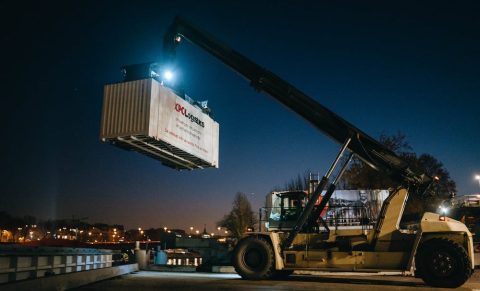RCG and Coca-Cola removed over 500 trucks from Austrian roads

Austrian rail freight operator Rail Cargo Group (RCG) has concluded its first year of transporting products for Coca-Cola HBC Austria along the railways. During this period, 560 trucks were removed from the Vienna-Tirol/Vorarlberg axis, RCG Board Member Christoph Grasl specified.
The bottles travel on trucks from the production site in Edelstal, near the Austrian border with Slovakia, to the Terminal Vienna South. From there, they are loaded onto trains for the longer leg of the journey to Tirol and Vorarlberg in the west of Austria. Once they reach these destinations, the bottles are moved once again onto trucks for the last-mile deliveries to food retailers and supermarkets.
RCG uses two-axle flat wagons and 45-foot swap bodies to carry out these services. With the swap bodies, RCG underlined, it will be possible to load and unload them from the rear, the sides or from above, making them easier to handle. The swap bodies “can also be used across all sectors for all goods”, RCG added. This partnership with RCG in Austria was not the first instance where Coca-Cola decided to shift from road to rail. In 2021, the beverage giant and Deutsche Bahn agreed on creating rail links to 13 Coca-Cola facilities throughout Germany.




